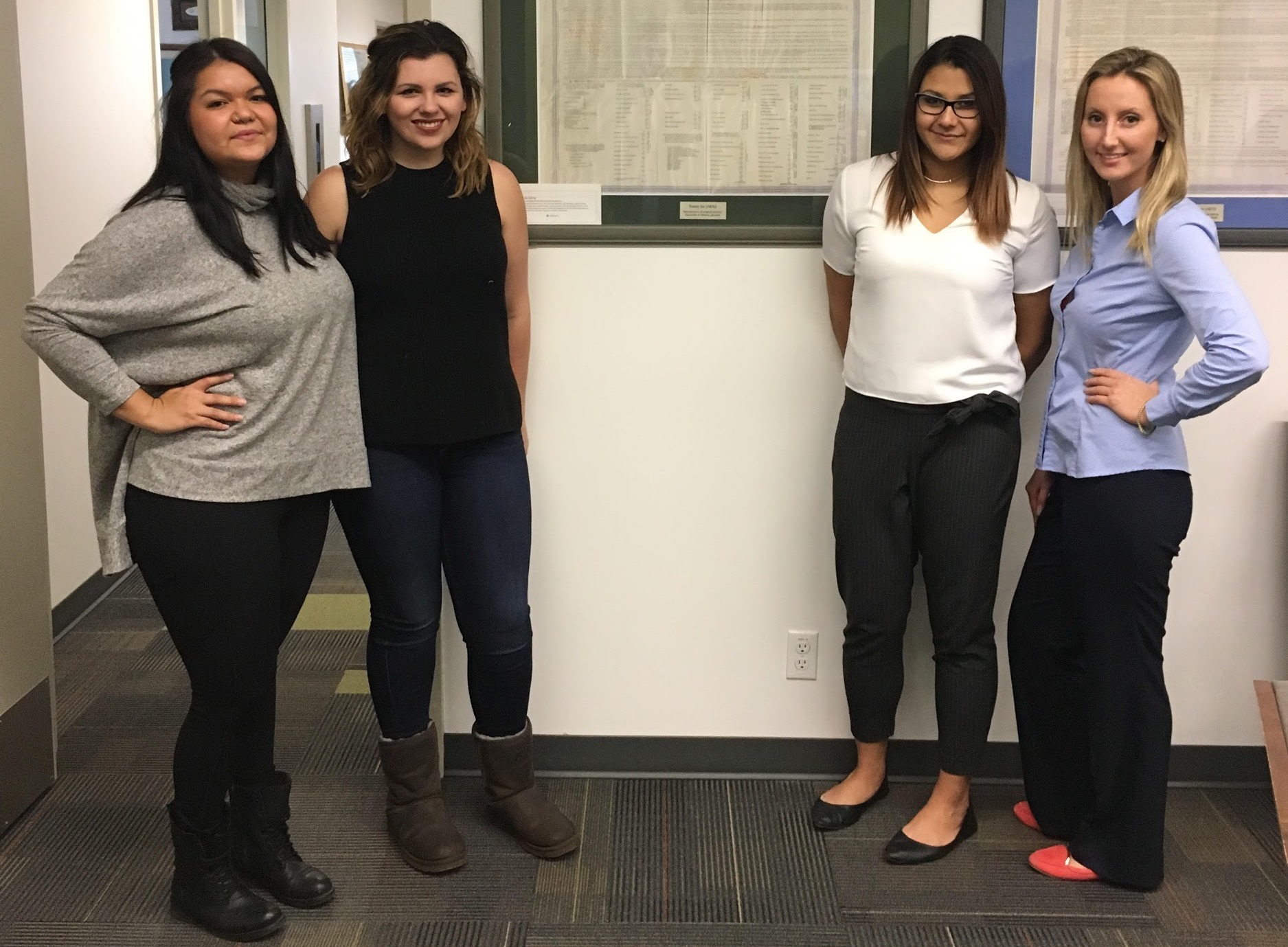
#ReconciliActionYEG founders, from left: Breanna Arcand-Kootenay, Katherine Creelman, Katelynn Cave and Grace Cleveland
When the team behind ReconciliActionYEG first asked their readers to define 'reconciliation,' they received relatively few responses.
Just five months later, their blog received the 2017 Canadian Law Blog Award for change and advocacy, winning on the basis of its detailed posts on justice for Indigenous peoples in Canada.
In a short time, ReconciliActionYEG has reached a global audience - some of their Twitter posts have reached thousands - and has created an accessible space for honest conversation around the Truth and Reconciliation Commission of Canada and the 94 calls to action in the commission's final report.
Grace Cleveland, Breanna Arcand-Kootenay, Katherine Creelman and Katelynn Cave launched their blog ReconciliActionYEG in September 2017 as a class assignment for the Faculty of Law's Law and Social Media course. Their goal was two-pronged: to foster relationships between Indigenous and non-Indigenous people and to increase public education and awareness.
According to Cleveland, much of the current dialogue surrounding the TRC and Indigenous communities has a negative undertone and because of that, it's easy for people to get overwhelmed with the heavy duty material. ReconciliAction takes a different approach.
"Instead of just focusing on all the problems Canada has, we are trying to provide ways forward and out," she said.
Every week, each student is responsible for writing one blog post on a predetermined topic, related to the TRC. The first four posts of the week focus on education and background information while the fifth explores a current issue or timely media story. With each student writing a post on the same topic, they're able to approach the issue from four different angles, something Cleveland said was a conscious decision.
She argues that even though they each bring unique perspectives and opinions to the campaign, their differences more accurately represent the many communities they aim to reach.
"The way that we see things and the things we find interesting don't always provide the same story, and that has allowed us to draw in so many more people. There are a million different perspectives, so having us replicate that on a micro level allows more people to come in and identify with it," said Cleveland.
A common driving force among all four students is their desire to create an ongoing conversation across all disciplines and communities. Their hope is to track people's engagement by bookending the project with the same question they began with: "what is reconciliation?"
Cleveland and her colleagues know that people want to participate in and learn about reconciliation initiatives, but that doing so isn't always easy. But by bringing the conversation to social media, people have an accessible way to engage with the topic, ask questions to different communities and intervene.
Since ReconciliActionYEG is a class assignment, their last post is scheduled for March 26, but that doesn't mean they want to stop the conversation.
"To win the [Clawbie] award shows that we have a real purpose in what we are doing. Our audience is everyone and anyone. Our whole point is these aren't Indigenous issues, these are social issues, and we all have a role in changing this situation," said Cleveland.
The ReconciliActionYEG project can be found on Twitter, Facebook and Instagram.